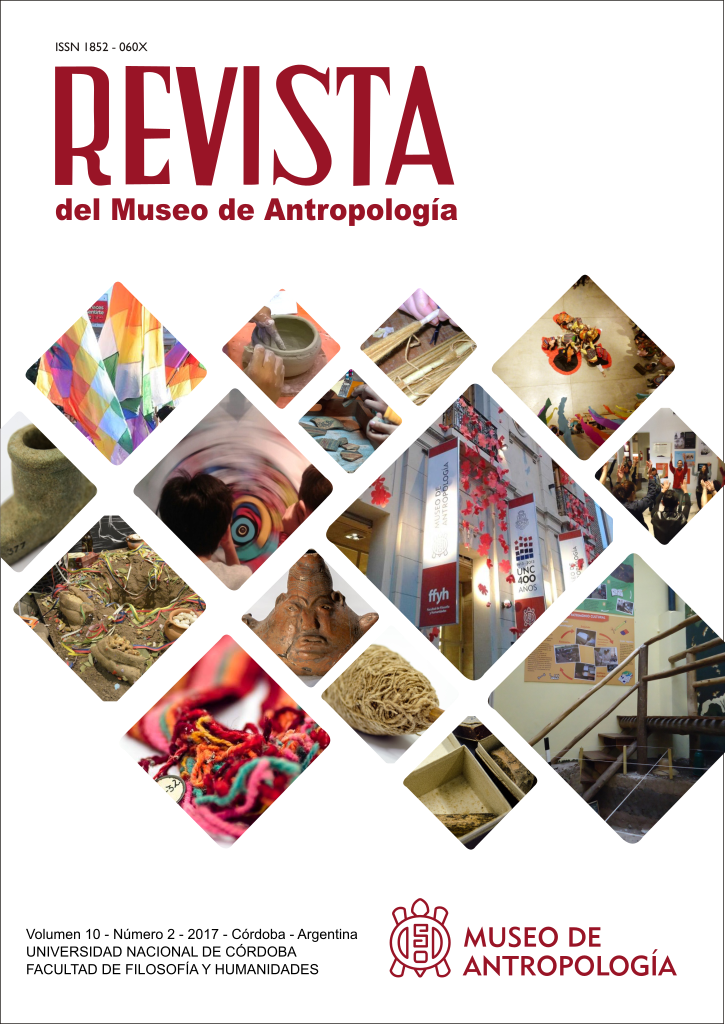Fanatics and the fanaticized: a comparative analysis of consumption practices and loyalty among football supporters and runners
DOI:
https://doi.org/10.31048/1852.4826.v10.n2.16630Keywords:
fanatics, fanaticize, running, supporters, loyalty, consumptionAbstract
With a foundation in fan studies, this article proposes an approach which articulates a comparative perspective with the field of socio-anthropology of sport based upon my fieldwork with football supporters and amateur runners. Through an analysis of my participant observation, I will present the different ways in which the market and cultural industry address football spectators as supporters, partners, and/or fans while some runners are presented as athletes, though they define themselves as fanaticized by this sport. While being a supporter or a runner are two identities with different capacities related to the contemporary and global context of social commodification, the practices of these groups may be associated. Thus, my aim is to study how clubs or brands appeal to consumers, proposing and imagining the ways to be a supporter or to practice a sport. These constructed identities are inherently linked to the current methods of consumption (both in football and sport in general), which can also be understood as results of “fanification” and loyalty strategies in regards to the club or brand.Downloads
References
Alabarces, P. (2004). Crónicas del aguante. Fútbol, violencia y política. Buenos Aires, Argentina: Capital Intelectual.
Alabarces, P. y Garriga Zucal, J. (2007). Identidades Corporales: entre el relato y el aguante. Campos, Revista de Antropología Social, 8(1), 145-166. Recuperado de http://revistas.ufpr.br/campos/article/view/9548/6622
Baudrillard, J. (2004 [1969]). Las estructuras de colocación; Conclusión: hacia una definición del consumo. En El sistema de los objetos (pp. 13-30; 223-229). México: Siglo XXI Editores.
Bauman, Z. (2008). Cultura consumista. En Vida de consumo (pp. 115-159). Buenos Aires, Argentina: Fondo de Cultura Económica.
Borda, L. (2012). Bettymaníacos, luzmarianas y mompirris: el fanatismo en los foros de telenovelas latinoamericanas (Tesis doctoral en Ciencias Sociales). Facultad de Ciencias Sociales, Universidad de Buenos Aires, Argentina.
Bourdieu, P. (1979). La elección de lo necesario. En La distinción: Criterios y bases sociales del gusto (pp. 379-403). Madrid, España: Taurus.
De Moraes, D. (2010). Cultura tecnológica, innovación y mercantilización. En Mutaciones de lo visible (pp. 45-80). Buenos Aires, Argentina: Paidós.
García Canclini, N. (1995). El consumo sirve para pensar. En Consumidores y ciudadanos. Conflictos multiculturales de la globalización (pp. 41-55). México: Grijalbo.
Garriga Zucal, J. (2005). ‘Soy macho porque me la aguanto’. Etnografía de las prácticas violentas y la conformación de las identidades de género masculino. En Alabarces, P. et al. (Comp.), Hinchadas (pp. 39-58). Buenos Aires, Argentina: Prometeo.
Giulianotti, R. (2012). Fanáticos, seguidores, fãs e flaneurs: uma taxonomia do identidades do torcedor no futebol. Revista de História do Esporte, 5(1), 25-46. Recuperado de http://www.ludopedio.com.br/v2/content/uploads/204400_recordeV5N1_2012_11.pdf
Giulianotti, R. y Robertson, R. (2009). Globalization and Football. London, UK: Sage Publications Ltd.
Hijós, M. N. (2014). El deporte como mercancía. Un estudio sobre la dimensión económica y las múltiples lógicas en el Club Atlético Boca Juniors (Tesis de grado en Antropología). Facultad de Filosofía y Letras, Universidad de Buenos Aires, Argentina.
Martín-Barbero, J. (1983). Memoria narrativa e industria cultural. Comunicación y cultura, (10), 59-73.
Moreira, M. V. (2005). Trofeos de guerra y hombres de honor. En Alabarces, P. et al. (Comp.), Hinchadas (pp. 75-90). Buenos Aires, Argentina: Prometeo.
Moreira, M. V. (2006). Los modos de ser hincha. Participación social y proceso político en un club social y deportivo (Tesis de maestría en Antropología Social). Instituto de Desarrollo Económico y Social, Universidad Nacional de General San Martín, Argentina.
Moreira, M. V. (2008). Club social y deportivo: hinchas, política y poder. En Alabarces, P. y Rodríguez, M. G. (Comps.), Resistencias y mediaciones. Estudios sobre cultura popular (pp. 113-138). Buenos Aires, Argentina: Paidós.
Moreira, M. V. (2010). La política futbolizada: Los dirigentes deportivos y las redes político-territoriales en Avellaneda (Tesis doctoral en Ciencias Sociales). Facultad de Ciencias Sociales, Universidad de Buenos Aires, Argentina.
Ortner, S. B. (2016). Antropología y teoría social: cultura, poder y agencia. San Martín, Argentina: Universidad Nacional de Gral. San Martín, UNSAM EDITA.
Sassatelli, R. (2012). Consumo, cultura y sociedad. Buenos Aires, Argentina: Amorrortu.
Taylor, I. (1971a). Football mad: a speculative sociology of football hooliganism. En Dunning, E. (Ed.), The sociology of sport: A collection of readings (pp. 352-377). London, UK: Frank Cass.
Taylor, I. (1971b). Soccer consciousness and soccer hooliganism. En Cohen, S. (Ed.), Images of Deviance (pp. 134-164). Harmondsworth, UK: Penguin Books.
Villena Fiengo, S. (2003). Gol-balización, identidades nacionales y fútbol. En Alabarces, P. (Comp.), Futbologías: fútbol, identidad y violencia en América Latina (pp. 257-271). Buenos Aires, Argentina: CLACSO.
Downloads
Published
Issue
Section
License
Those authors who have publications with this Journalaccept the following terms:
a. Authors will retain their copyrights and guarantee the journal the right of first publication of their work, which will be simultaneously subject to the Creative Commons Attribution License (Licencia de reconocimiento de Creative Commons) that allows third parties to share the work as long as its author and his first publication in this journal.
b. Authors may adopt other non-exclusive licensing agreements for the distribution of the version of the published work (eg, deposit it in an institutional electronic file or publish it in a monographic volume) provided that the initial publication in this journal is indicated.
c. Authors are allowed and recommended to disseminate their work on the Internet (eg in institutional telematic archives or on their website) before and during the submission process, which can lead to interesting exchanges and increase citations of the published work. (See The Effect of Open Access - El efecto del acceso abierto)












